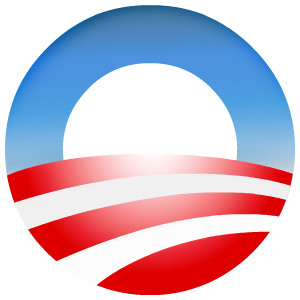The Office Of Legal Counsel is an important executive position. The OLC gives legal advice to the president and, by extension, the executive branch. Among other things, it informs the CIA and the Department of Interior what it judges to be permissible under the laws, and its opinions are binding.
Most people had never heard of the OLC before the Bush Administration. Then along came John Yoo, Bush's head of the OLC. Yoo, rather than presenting the law, used the office to find ways to skirt the law*. His so-called, now infamous, "torture memos" — which gave legal approval to waterboarding and other torture techniques – will go down in history as some of the most awkwardly strained legal reasoning ever put to paper.
Dawn Johnsen, Professor of Law at the Indiana University School of Law, had this to say about Yoo's memos:
"The Torture Opinion is an easy target for criticism, an extreme example of poor lawyering. A strong case can be made that the Opinion does not meet the professional standards that define any transactional attorney's ethical obligations in advising a client."
She added:
"That the President should premise his actions on the administration's best – and not merely plausible – interpretations of the relevant law is a relatively uncontroversial principle, at least as a theoretical matter. (…) Measured by this standard, the Torture Opinion utterly fails."
Johnsen believed not just that the torture memos were badly argued, but that many of the interrogation practices they licensed are in fact illegal:
"The Torture Opinion focuses exclusively on just one statutory prohibition, which could give the impression that interrogations that fall just short of the Opinion's narrow interpretation of torture are not unlawful. In fact, several other laws further prohibit coercive forms of interrogation that would fail to meet even a broad definition of torture. The soldiers who committed the Abu Ghraib abuses, for example, were subject not only to the limits of the federal anti-torture statute, but also to far more extensive restrictions contained in the Uniform Code of Military Justice (UCMJ), most notably prohibitions against cruelty, oppression, or maltreatment of a detainee. The anti-torture statute itself implements a treaty that prohibits "cruel, inhuman and degrading treatment." A final example: Common Article 3 of the Geneva Conventions goes far beyond torture and prohibits "violence to life and person, in particular murder of all kinds, mutilation, cruel treatment and torture," and "outrages upon personal dignity, in particular humiliating and degrading treatment." At the time of the Torture Opinion's issuance, violations of Common Article 3 were punishable war crimes under federal law."
And finally, this is what she had to say on the Bush Administration's (mis)use of the OLC in general:
"The proposition that the President's own legal advisors can provide an effective constraint on unlawful action understandably engenders a high degree of skepticism – especially in light of recent events. One of President Bush's legacies undoubtedly will be the deepening of Americans' cynicism about presidential adherence to the rule of law. The Bush Administration, however, also provides some evidence to the contrary, for example, in the resistance to advice given by the U.S. Department of Justice's Office of Legal Counsel (OLC) regarding torture from lawyers and other advisors elsewhere in the executive branch and later from within OLC itself. Internal checks alone, of course, are insufficient. But we debase our commitment to democracy and justice if we do not view legal advice from within the executive branch as an essential component of efforts to safeguard civil liberties, the constitutional allocation of governmental authority, and the rule of law. We invite failure if we allow our cynicism to excuse presidential abuses as simply expected – in effect relieving Presidents (and those who serve them) of their obligation to take care that the laws be faithfully executed, as the U.S. Constitution commands."
Yes, yes, yes. Exactly.
Why do I bring this up? Because Obama has appointed the author of these fine observations, Dawn Johnsen, to the post of Assistant Attorney General for the Office of Legal Counsel.
***********************************
* Interesting thing about Bush's law-men, John Yoo and John Bolton. After years of advocating unbridled executive power, they suddenly think that presidential power should be limited, and Congress and the Court should act as a guiding counterbalances.
Bolton and Yoo believe — get this — the president should have less authority and discretion when it comes to international affairs.
The Constitution's Treaty Clause has long been seen, rightly, as a bulwark against presidential inclinations to lock the United States into unwise foreign commitments. The clause will likely be tested by Barack Obama's administration, as the new president and Secretary of State-designate Hillary Clinton, led by the legal academics in whose circles they have long traveled, contemplate binding down American power and interests in a dense web of treaties and international bureaucracies.
Like past presidents, Mr. Obama will likely be tempted to avoid the requirement that treaties must be approved by two-thirds of the Senate…. By insisting on the proper constitutional process for treaty-making, Republicans can join Mr. Obama in advancing a bipartisan foreign policy. They can also help strike the proper balance between the legislative and executive branches that so many have called for in recent years.
Steve Benen comments:
Reading this, I had to double check to make sure we were talking about the same Bolton and Yoo. After all, John Yoo has spent most of the last eight years arguing that the president has an unfettered power to do as he pleases on the international stage. Indeed, Yoo argued that the president can literally ignore any law he chooses — including the Constitution — if he decides it's in the nation's interests.
But that was then. Now Yoo is worried about executive overreach. Now Yoo wants every letter of the Constitution to be respected and adhered to without exception…
I wonder why the change of position….
Oh, riiight….

